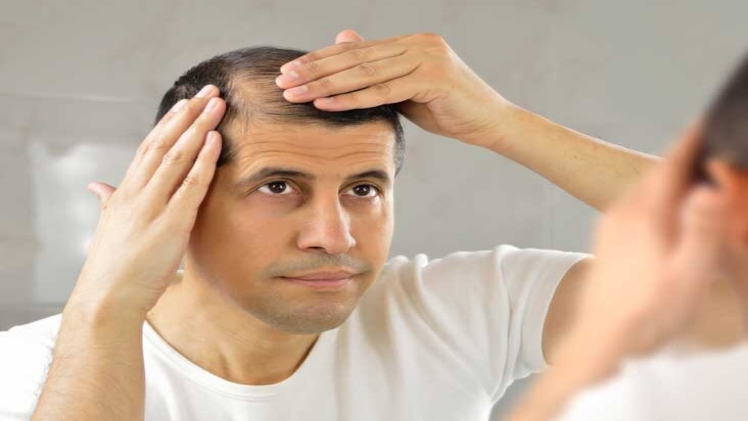Your body does not contain insulin, does not use it properly, or both if you have diabetes. Insulin is a hormone that transports sugar from your carbohydrates to your cells for storage or energy use from their bloodstream. Sugar will build up in your blood if you don’t have insulin or is not used efficiently. Excess sugar can damage organs in your body, eyes, nerves, kidneys, and so on. It can damage your blood vessels as well. These ships transport oxygen to nourish the organ and tissues around your body. Damaged blood vessels cannot provide sufficient oxygen to feed your hair follicles. This oxygen deficiency will affect your regular cycle of hair growth serum.
The hair and diabetes period
Usually, the Hair passes three stages. Hair grows at a rate of 1 to 2 cm per month during the actively growing stage, which lasts for two years or longer. Then Hair enters an approximately 100-day resting period. Some of the Hair that is resting falls off after this point.
This can be interrupted by diabetes, which slows your hair development. You can also lose more Hair than usual if you experience diabetes. This Hair loss isn’t about your ears. You may also lose Hair on your head, legs, and other parts of your body. It works slower than usual when the Hair grows. While science is restricted to support Sternko’s observation, it is said that consuming protein and certain fats can help to give you lustrous Hair.
“You will eventually get a hair that is dry and thinner if you don’t have enough protein. Protein is a building block for keratin,” says New York-based dermatologist Dr. Debra Wattenberg.
The body arm keratin, a fibrous protein that builds Hair and nails, with meats, fish, bovine, and soy. Help make the hair shine while omega-three fats are found in fish, walnuts, and flaxseed. People with diabetes have a disease called alopecia areata more often. The immune system destroys hair follicles with alopecia, leading to hair loss spots on the head and other body areas.
Hair loss will result in diabetes itself. As a side effect of stress, you could lose your Hair because of living with a chronic disease or medications used to treat your diabetes. Some people with diabetes are also thyroid, which can lead to hair loss. Some symptoms and health problems, including loss of Hair, can arise from diabetes. However, reasonable control over blood sugar can help reverse hair loss symptoms. Loss of Hair is a standard part of the hair cycle. The Hair will fall when it approaches the final stage of the process. Usually, a new hair will develop to replace it with the same hair follicle. However, new hair can not form often. If the scalp may not appear in large areas, a new Hair will be visible. This hair loss. Many factors, including stress, hormones, high blood sugar, and underlying conditions such as diabetes, may affect hair growth. This article discusses how diabetes can affect Hair and explain how hair loss can be treated.
High levels of blood sugar
Diabetes that is uncontrolled or untreated may lead to an individual having too high blood sugar levels. Persistently elevated blood sugar levels can lead to damage within the body to different tissues, organs, and blood vessels.
Damage to the blood vessels will reduce blood flow and reduce oxygen and nutrients in specific cells than they need. The average growth cycle of hair follicles can negatively impact this deficiency, leading to loss of Hair.
Stress and hormones
Diabetes can place a lot of stress on the body of an individual, either physically or emotionally. Permanent stress can trigger fluctuations in hormones that can influence hair development. You will need to know cost of trulicity.

